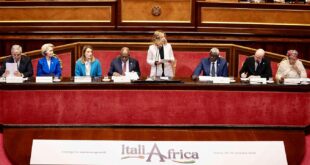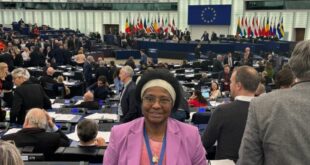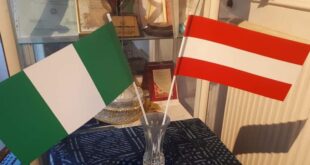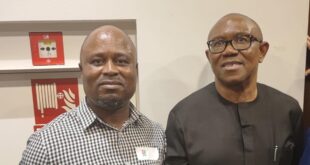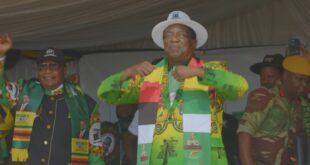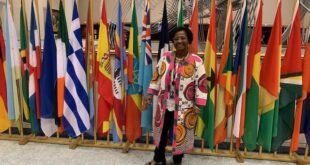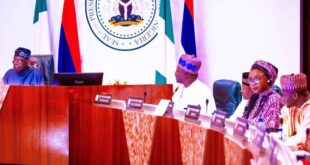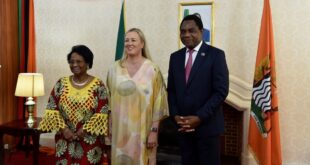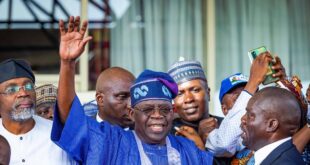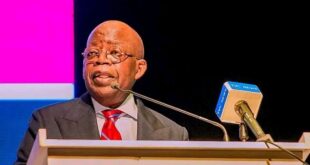The French and German leaders pledged on Monday (15 May) to relaunch the partnership between their two countries in order to “reconstruct” the EU.
“We agreed that we want to develop a roadmap for the European Union’s medium-term perspectives,” Chancellor Angela Merkel said in a joint news conference with President Emmanuel Macron in Berlin.
She said that the two leaders have the “common conviction that [they] should not only deal with the UK exit” but that they should think of how to “deepen” and “strengthen” the EU and the eurozone.
Merkel said that she would be “ready” to the change the EU treaties “if it is useful”, and insisted that the EU would be “vulnerable” if it refused to amend its existing rules.
Macron said that treaty change was “no longer a French taboo”.
The two leaders said that they would hold a Franco-German ministerial meeting in July to work on common proposals to reform the EU, including initiatives to have converging tax rules.
Macron’s meeting with Merkel was his first visit abroad after his inauguration on Sunday, as it had been for his predecessors – Nicolas Sarkozy and Francois Hollande.
The new French president said he wanted a “trustful” relationship with Germany, not a “relationship of opposition and blackmail”, and that they would be a “frank, direct and constructive partner”.
He said during his campaign that France should get closer to Germany, in particular by making reforms.
On Sunday, he chose the current French ambassador to Berlin – and former EU ambassador – Philippe Etienne, as his diplomatic adviser. And on Monday, he appointed Prime Minister Edouard Philippe, a centre-right politician like Merkel, who is said to be fluent in German.
At the press conference with Merkel, he said he would have a “heavy task,” but that his agenda would be to reach economic, social and education reforms.
He said he would make reforms “not because Europe requests it, but because France needs it,” even if they are also “necessary for the restoration of Franco-German [relations]”.
For the first time since his election, Macron laid out his vision for the eurozone.
He said that the eurozone needed “fresh money” – which he said the €315-billion so-called Juncker investment plan cannot provide – through a “real budget capacity”.
He added that this would have to be done through “convergence rules and real structural reforms”.
Close co-operation
Macron addressed a source of German concern by saying that he had “never defended [the idea of] Eurobonds or the mutualisation of existing debt in the eurozone” because it would make some countries less responsible.
In this case, he said, “those who made efforts are not rewarded compared to those who made efforts”.
During their meeting, followed by a dinner in the German chancellery, outside of which people had gathered to cheer Macron, the German and French leaders also discussed issues like the posted workers directive, the reform of the EU asylum system and reciprocity in trade.
Macron insisted that the EU should do more to protect itself against dumping. Merkel said she was open to his proposal for a “buy European act”, to favour EU companies bidding for public contracts inside the EU.
They pledged “close cooperation” on all issues, even if they do not always agree.
“Germany’s interests are closely linked to France’s interests,” Merkel noted. “Europe is well only if there is a strong France”.
Eric Maurice / EUobserver
 THE AFRICAN COURIER. Reporting Africa and its Diaspora! The African Courier is an international magazine published in Germany to report on Africa and the Diaspora African experience. The first issue of the bimonthly magazine appeared on the newsstands on 15 February 1998. The African Courier is a communication forum for European-African political, economic and cultural exchanges, and a voice for Africa in Europe.
THE AFRICAN COURIER. Reporting Africa and its Diaspora! The African Courier is an international magazine published in Germany to report on Africa and the Diaspora African experience. The first issue of the bimonthly magazine appeared on the newsstands on 15 February 1998. The African Courier is a communication forum for European-African political, economic and cultural exchanges, and a voice for Africa in Europe.











